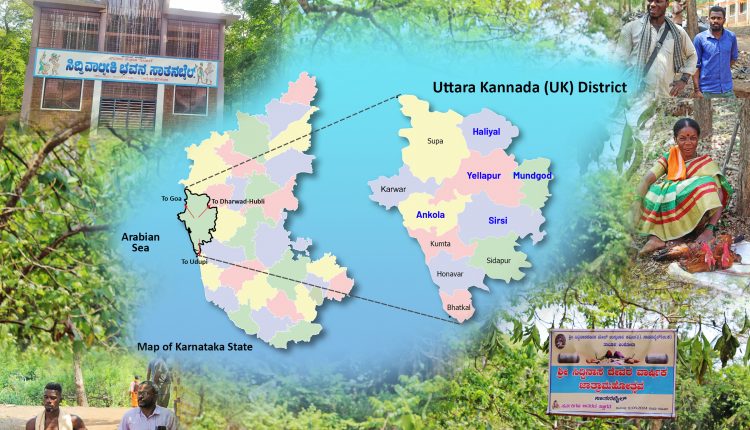Siddi’s of East African origin in Uttara Kannada (U.K) District, Karnataka .
Manjunath K. Shresthi
May 16, 2024
Trade, commerce and economics has been the sole reason for countries to prosper, and to it, one can also add geography. Different continents had trade relations since millennia, and this was the reason why sea faring nations prospered at the expense of the others.
The European colonisers went in search for newf colonies having perennial supply of raw materials and spices to expand their global footprint, and they succeeded at the cost of the natives. The African slave trade was an economic growth engine as it provided cheap labour and kept moving the levers of trade and commerce across the globe. As per historical records and accounts, the Arab traders were the first to deal in buying and selling of east Africans in different markets in trading posts. The Europeans also realised their importance and they too followed suit in the slave trade.
India’s west coast witnessed their coming mostly in Gujarat and Maharashtra, and the Portuguese who bought them to work in their colonies. The Portuguese captured Goa, after they defeated the Sultans of Bijapur (now Vijayapura in Karnataka state). The Portuguese ruled the western coastal state of Goa for 450 years, from 1510 to December 1961. Modern day Goa shares land and maritime borders with Maharashtra to its north and Karnataka to its south. The African slaves who could no longer tolerate the inhumane treatment meted out to them by their white masters, decided to make a run for freedom. Some of them escaped their tormentors and moved south to neighbouring north Canara (now Uttara Kannada district, Karnataka). They came in groups after crossing rivers and inaccessible forests and started a new life in the thick forests of the western ghats.
The Siddi’s residing in Karnataka state are in Ankola, Haliyal, Mundgod, Sirsi and Yellapur taluks of Uttara Kannada (U.K) district in north west Karnataka. In 2003-04, the Siddi community got the Scheduled Tribe (ST) status. They have political representation but it’s not adequate for the
community.
Socio-Religious & Economic status: Even today they reside in remote forest areas which are inaccessible, and cut off from modern civilization. Their existence is also not known to the majority of the people within the state and also across the country. They are Africans, but they have Indianized and learnt the customs and traditions of the land, and are a part of the society they peacefully coexist with. They mostly stay on encroached forest land and the demand of all Siddi’s is clean drinking water and a good strong house to stay.
Social oppression of the Siddi’s has been a sad saga of the tribal community. Most of them, not even aware when they came to Yellapur, but believe that, they are staying for the last 200 years. And on reaching Yellapur, they converted to Hinduism.
Lack of education is a serious cause for concern and backwardness among the community, they had not seen a proper school till recently. Education should help those who are illiterate and backward to join the mainstream society.
Exploitation by the upper castes has been their way of life, and not getting recognition for what they do also lets their morale down. They worked as bonded labourers in the houses of land owning communities of the so-called upper castes in the region. People without jobs work as bartenders,
cooks, masons in Udupi, Mangalore, Goa and visit their native villages once a month. Some of them have no place to work even as daily labourers, and even no coolie work available. Girls and women seek employment in nursing homes.
Rampant Unemployment: There are both landed and landless Siddis; the former grow arecanut, banana, coconut, paddy and pepper. The landless work as coolies, farm labourers, and cut bee-hives. Unemployment continues to be a major cause of concern as only a few of the educated youth are employed, and most of them find employment in the informal sector.
Demand for vocational job training centres: To start a Sakshatra Andolan in night schools for Siddi’s who can’t speak Kannada fluently, and to those who speak the language but cannot write.
Training farmers with modern technologies; work for safeguarding the environment like afforestation and preserving tribal knowledge for future; bee keeping; dairy and poultry farming; making patch work quilts (kaundi in Kannada language); wall hangings, restart working on making bamboo products like baskets and other daily use items widely used by people of all communities. Their entire lives revolves around bamboo, and not getting the raw material has reduced their employment potential. The family occupation of Siddis (kula kasaba in Kannada language) is making kaundis, as it helps in self employment generation.


